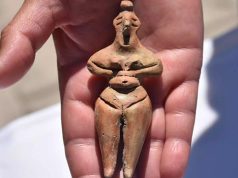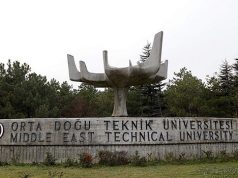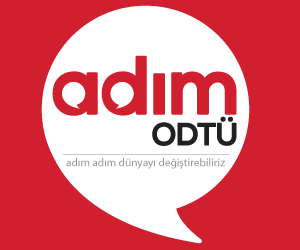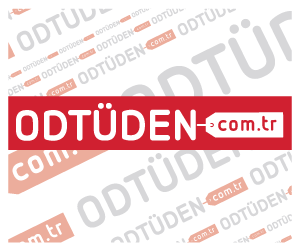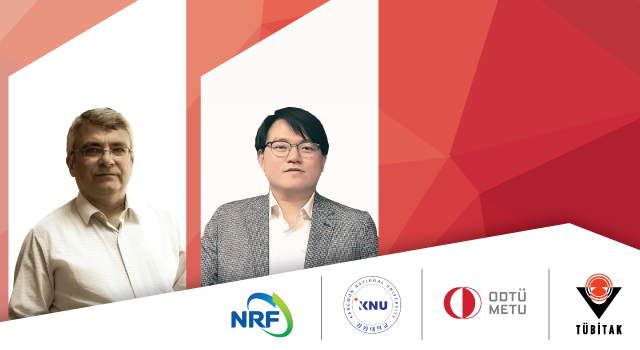
The project titled “Boundary Layer Linear Stability Analysis in Thermochemical Nonequilibrium Hypersonic Flow for Earth and Mars Environment with Surface Ablation Effects,” led by Prof. Serkan Özgen from the Department of Aerospace Engineering at METU and Asst. Prof. Yosheph Yang from Kangwon National University, has been selected for funding under the TÜBİTAK 2523 – National Research Foundation of Korea (NRF) Bilateral Call for the year 2024. The BISTATE project stands out due to both principal investigators having earned their bachelor’s and master’s degrees from METU in different years.
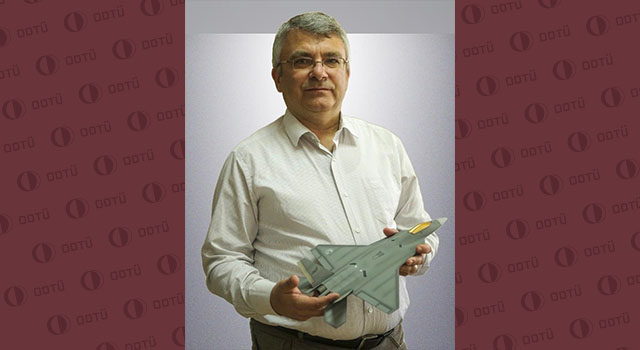
Prof. Serkan Özgen earned his bachelor’s degree in 1992 and his master’s degree in 1994 from the Department of Aerospace Engineering at METU, where he currently works as a faculty member. Similarly, Dr. Yosheph Yang, who is now a faculty member at Kangwon National University in Korea, obtained his bachelor’s degree in 2009 and master’s degree in 2013 from the same department with a thesis supervised by Prof. Serkan Özgen.

BISTATE: Boundary Layer Linear Stability Analysis in Thermochemical Nonequilibrium Hypersonic Flow for Earth and Mars Environment with Surface Ablation Effects
Expected to span 24 months, the BISTATE project is based on the importance of predicting the laminar-turbulent transition region for estimating heat transfer and skin friction drag during the flight, as well as the interest in hypersonic flight in both our country and the Republic of Korea. The project aims to perform linear stability analysis and predict turbulence transition in hypersonic flow by taking into account the effects of blowing gas from the surface ablation. In order to achieve these objectives, four sub-works will be conducted. At Kangwon National University, the study efforts will focus on “Updating the Thermodynamic Model and Ablation Boundary Condition for both Earth and Mars Hypersonic Flow CFD Solver” and “Obtaining Boundary Layer Velocity and Temperature Profiles.” Meanwhile at METU, studies will be conducted on “Hypersonic Flow Linear Stability Analysis” and “Prediction of Laminar-Turbulent Transition in Hypersonic Flow.”
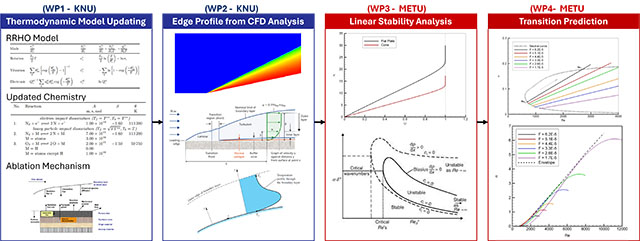
The BISTATE project will contribute to a better understanding of the role of laminar-to-turbulent transition in hypersonic flow, which is critical for predicting surface heat transfer for the Thermal Protection System (TPS) of re-entry vehicles. The technology developed through the project will enable more accurate predictions of surface heat transfer and provide insights for improving the design of heat shields for re-entry vehicles. The project is expected to support the development of safer and more efficient designs for vehicles re-entering the atmosphere at hypersonic speeds. In particular, by refining the prediction of laminar-to-turbulent transition and surface-generated heat transfer, the project will boost the performance of TPS heat shields. This, in turn, will play a crucial role in ensuring the resilience of spacecrafts to the extreme temperatures and pressures encountered during entry into the atmosphere of Earth and Mars. The knowledge gained through the project will contribute significantly to future space missions, providing essential technological advancements for vehicles operating under these challenging conditions.
About the TÜBİTAK 2523 – National Research Foundation (NRF) of Korea Support Program
A total of seven projects were selected for funding under the TÜBİTAK 2523 National Research Foundation of Korea Bilateral Call for the year 2024, the results of which were announced in December 2024. Two of these projects will be conducted in partnership with METU. More information about the call and other funded projects can be accessed here.



